If you’re reading this, you’ve likely made the decision to pursue your CPA license. That alone sets you apart and puts you in a select group of professionals aiming to elevate their careers, credibility, and earning potential within the field of accountancy.
This guide isn’t about telling you if the CPA is worth it. If you’re here, you’ve probably already decided that it’s right for you. Instead, we’ll be focusing on what comes next: how to succeed at one of the most challenging professional exams out there to answer the question:
“How do I actually prepare for and pass the CPA exams?”
Preparing for the CPA exams can seem overwhelming. With so much content to cover, multiple sections to plan for, and life constantly competing for your time, it’s easy to feel lost before you even begin.
That’s what this whopper guide is for. Check out our step-by-step, actionable and clearcut guide to pass your CPA exam, backed by real-world insights to help you prepare effectively, stay on track, and pass with confidence.
- Strategy first: How to plan your CPA journey
- Section-by-section strategy: How to pass each CPA exam
- Mastering CPA exam content: How to study smarter, not harder
- CPA exam practice strategy: MCQs, SIMs & pacing
- Mindset, motivation & staying on track
- Exam day game plan
- 10 insights from real CPA candidates: What actually helped them pass
- After the CPA exam: next steps
Strategy first: How to plan your CPA journey
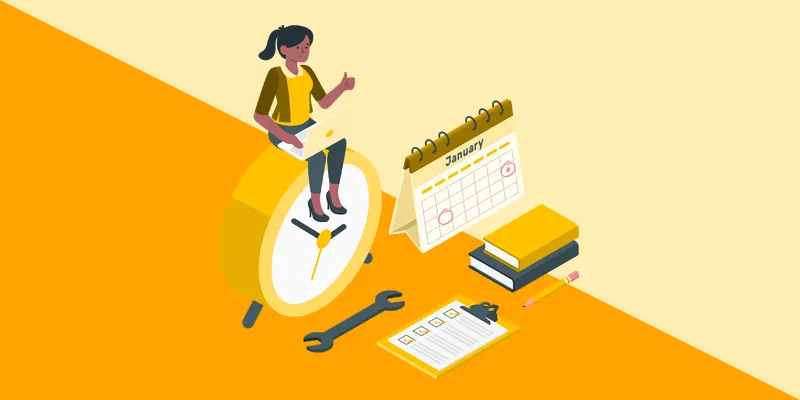
- Choose your exam order based on strengths and strategy.
- Break your plan into weekly, realistic targets, not vague “sometime this year” goals.
- Track your time, protect your schedule, and be flexible when life happens.
Before you crack open your review materials or dive into practice questions, take a step back and build your strategy. Passing the CPA exams is a multi-month commitment, (typically anywhere from 6 to 18 months) and without a clear plan, it’s easy to get overwhelmed or off track.
Choose your exam order
There’s no universal “correct” order, but your sequence matters, especially since the CPA requirements in most states mean you have 18 months to pass all four exams once you pass the first.
Which section to tackle first really depends on your strengths, background, and personal circumstances.
Many candidates start with a section they feel most confident in to build early momentum (often AUD or for those with an audit background, or REG for those with tax experience). Others prefer to tackle the hardest section first (usually FAR) while motivation is high.
Your first choice also matters because it sets the clock ticking; remember that once you pass one section of the CPA exams, you have 18 months to pass the remaining three.
Popular sequence strategies:
- Start with your strongest section to build momentum with an early win.
- Alternatively tackle FAR first. It’s usually considered the toughest, so get it done when your motivation is high.
- Leave REG or a Discipline section until last. Many candidates find these more manageable once they’re in rhythm.
If you’re unsure which sections you’re strongest in, take a diagnostic quiz or review your recent coursework to find your most familiar subject.
Build a realistic study timeline

Most CPA candidates will pass all 4 exams in 6 to 18 months. The key here is to set a study pace you can realistically sustain, especially if you’re working full-time or balancing other responsibilities.
While everyone will have slightly different requirements when it comes to how much time they’ll need to put into each section, depending on their individual strengths. As a general guide here’s how long you should plan for each:
| CPA exam section | Required study time |
|---|---|
| FAR | Approx. 120 hours |
| REG | Approx. 100 hours |
| AUD | Approx. 90 hours |
| Discipline (BAR, TCP, ISC) | Approx. 100 hours |
So what does this mean in terms of how long it will take you to pass the CPA? Well, it all depends on how much time you can realistically dedicate to studying each week.
Here’s a breakdown of how long it might take you to complete the CPA exams based on how much time you can commit on a weekly basis:
| Study time per week | Time to complete all 4 sections |
|---|---|
| 10 hours | Approx. 9-12 months |
| 15 – 20 hours | Approx. 6-9 months |
| 25+ hours | Approx. 4-6 months (aggressive but possible) |
Rather than focusing on the total timeframe, break your goal into manageable phases. For example, if you think you’ll be able to dedicate 10 hours per week to studying, focus on a 10 to 12-week plan per section with time for review, mock exams, and catch-up.
Protect your study time…
As with any major achievement, a big part of CPA exam success is about how consistently you show up. That means your study time needs to be treated as non-negotiable and not optional.
Without protected time, it’s easy for your studying to be the first thing that gets pushed aside when life gets busy. And let’s face it, life is always busy. Whether it’s work emergencies, family responsibilities, or just mental fatigue, your study schedule will be under constant pressure. If you treat it casually, it won’t happen consistently, and inconsistency is what leads to burnout, last-minute cramming, and failed exams.
Think of your study time as a meeting with your future self; the version of you who’s already passed the CPA and has more options, higher earning potential, and professional freedom. You wouldn’t cancel a meeting with your boss or your most important client, so don’t cancel on that version of you, either.
Even if you only have an hour a day, protecting that hour fiercely and using it intentionally and consistently will get you further than any random burst of unstructured weekend studying.
Here’s how to keep your study time protected:
- Block your study time in your calendar and label it clearly e.g. “FAR Practice Set – No Interruptions”.
- Turn off notifications during your study sessions (yes, even Slack and email).
- Let others in your household know when you’re “off-limits” (headphones or a physical sign can help).
- Have a focused task scheduled and ready before you sit down to avoid wasting time deciding what to do.
- Shift your mindset; don’t see your schedule as a suggestion, it’s your accountability system and takes priority over everything else (other than serious or health related emergencies).
…but be realistic and plan for life, too

Of course, protecting your study time doesn’t mean pretending life will always go to plan. Because it won’t.
Even the most carefully crafted schedule will fall apart if it doesn’t account for the reality of your day-to-day life. It’s one thing to block out 15 hours a week on a spreadsheet, but it’s another to actually find that time when a work meeting runs late, there’s a family emergency, you catch the flu, or you’re just feeling mentally drained for whatever reason (we’ve all been there).
That’s why your CPA exam plan also needs to include space for flexibility:
- Identify your non-negotiables like work, family duties, or big events. Plan around them from the start so they don’t knock you off course.
- Know when you’re most alert and use those windows for focused study because energy matters just as much as time. Your brain doesn’t care that your calendar is free at 9 p.m. if you’re mentally drained by then.
- Build in one “buffer week” per exam section to accommodate unforeseen events. Use it to catch up, reset, or review weak areas. If it turns out you don’t need it then it’s a bonus you can use to rest, or even repeat one of your other weeks of study.
- Don’t panic if a day gets missed from time to time. Consistency matters more than perfection.
Your CPA journey should fit into your life not bulldoze over it. Studying with discipline and compassion side by side is the key to staying motivated and sane, so create a schedule that supports both.
Set weekly milestones, not just big goals
It’s tempting to set a single, exciting goal like “Pass AUD by March”. And while longer-term goals are important for direction, they’re often not enough to keep you motivated and on track week to week. That’s where breaking your studying down into smaller weekly milestones comes in.
Goals keep you dreaming, milestones keep you moving.
Think of it like this: If your goal is about where you want to be, your milestones are the steps you need to take to get there
Here are four reasons why setting milestones is important:
1. They keep you grounded in action
A goal like “Pass FAR” sounds inspiring, but it doesn’t tell you what to do today. Weekly milestones break that big objective into clear, immediate actions so you’re never stuck wondering what to work on.
2. They create built-in accountability
When you know what you should be doing each week, it’s easier to check your CPA exam progress and course-correct. Without this, it’s easy to fall into the trap of “studying a little” but not actually making much valuable progress.
3. They give you regular wins
Passing a section might be months away and that can sometimes feel a bit discouraging. But hitting weekly targets (like completing a module or passing a quiz set) creates a sense of momentum and progress that keeps your motivation high.
4. They help identify weak points early
By tracking what gets done each week, you can quickly spot topics or sections where you’re falling behind and adjust before it’s too late and the problem escalates.
Use tools to track and adjust
Studying for the CPA exam without tracking your progress is a bit like training for a marathon without knowing how far you’ve run. You might be working hard, but you won’t know if you’re actually on pace (or falling behind) until it’s too late.
Tracking your progress helps you stay focused, organized, and adaptable. It allows you to spot patterns, diagnose weaknesses, and make smarter decisions about where to spend your time to help you pass the CPA exam.
| Tool | How to use it |
|---|---|
| Study Planner or Calendar (Digital or Paper) | – Use a dedicated Google Calendar, a system like Notion or Trello, or even a printed planner. – Block out your study sessions and set deadlines for completing specific topics or review phases. – Seeing the plan laid out helps you visualize the journey and stay committed to it. |
| Excel or Google Sheets Trackers | – Create a weekly tracker that logs hours studied, sections completed, quiz scores, and weak topics. – This gives you a quick, visual snapshot of your consistency and shows you where your time is going to help you stay on track. |
| CPA Review Course Dashboards | – Most major review courses include built-in analytics that show your completion rate, performance on question types, and areas of weakness. – Use these dashboards often to adjust your areas of focus where needed. |
| Missed Question Log | – Maintain a simple document or spreadsheet where you log every question you got wrong, along with why you got it wrong. – This helps you recognize recurring mistakes and refine your thinking. |
| Mock Exam Performance Tracker | – Before taking a full exam, log your practice test scores. – Break them down by topic to identify your lowest-performing areas and focus your final review where you need it most. |
No matter how good your plan is at the start, things will most likely change along the way. You’ll hit tough topics, get off schedule, or simply realize some study methods aren’t working for you to help pass the CPA exam. But tracking gives you the data you need to adjust your strategy based on reality, not guesswork.
For example:
- If you see that you’re doing well in MCQs but bombing SIMs, shift more time to simulation practice.
- If your data says you keep failing the same kinds of questions, build a focused review plan just for those.
- If your hours drop off in Week 5, ask yourself: was it burnout? Work overload? Poor planning? Then fix it for the next cycle.
Remember: Consistent progress is more important than perfection. The right tools give you visibility, and visibility gives you more control over your CPA exam progress.
Section-by-section strategy: How to pass each CPA exam
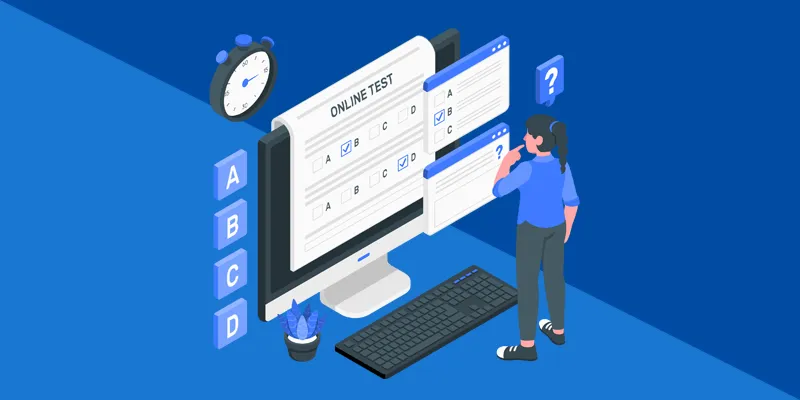
Every section of the CPA exam has its own personality. Some feel fast and familiar (like, AUD), while others might hit you with dense tax rules or complex journal entries (like REG and FAR). And with the latest CPA Evolution format, you’ll need to choose one discipline section from three options. It’s usually a good idea to pick one that aligns with your strengths and career goals.
So, to help you tailor how you approach your CPA study, let’s break down what to expect from each exam and look at where candidates often struggle, what strategies work, and mistakes to try and avoid.
FAR: Financial Accounting and Reporting
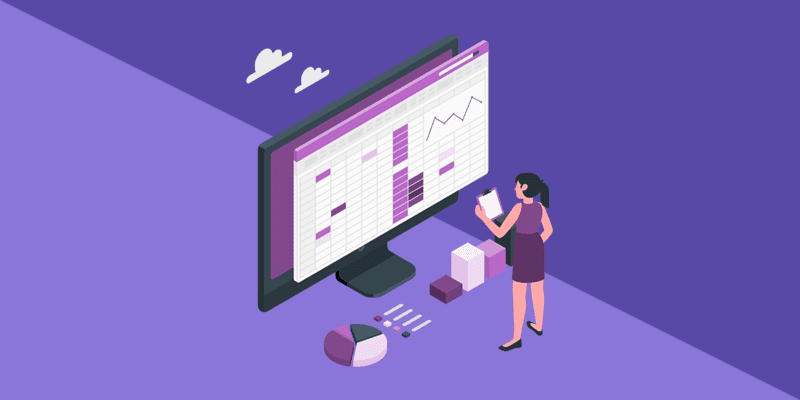
FAR has the reputation of being the longest, most content-heavy of the CPA exams. And for good reason; it’s a full-on deep dive into GAAP, financial statements, journal entries, and even government and nonprofit accounting. You don’t need to be perfect, but you do need stamina, structure, and a solid grip on the fundamentals to pass this section.
What FAR tests
- Financial statement prep and disclosures
- Revenue recognition (ASC 606), leases, bonds, pensions
- Governmental and not-for-profit accounting
- Conceptual framework and standard-setting
- Journal entries and transaction flows
Where candidates struggle with FAR
Let’s be honest, FAR is a lot. It’s not just that there’s more content than any other section, it’s that much of it is technical, interconnected, and easy to confuse if you don’t take the time to truly understand it. Here are the things people often struggle with:
- The sheer volume: FAR feels never-ending, and without a solid plan, it’s easy to lose momentum or forget what you covered two weeks ago.
- Government vs nonprofit accounting: These rules feel totally different from standard GAAP. Fund types, net asset classifications, budgetary accounting; none of it seems intuitive.
- Tricky, layered topics: Pensions, leases, and bonds all require multiple steps and new frameworks. They’re dense, and they regularly show up in SIMs.
- Lack of review: With so many topics to cover, candidates often rush ahead without revisiting old material, and end up needing to relearn it later from scratch.
Common mistakes with FAR (and how to avoid them)
Even if you know the material, your study approach can make or break your success. Here are a few common missteps that trip people up when studying for FAR:
- Leaving government/nonprofit to the end: These topics are confusing and important. Don’t wait until your final week to touch them.
- Trying to brute-force everything. FAR is a section where understanding beats memorization. Use journal entries and visual tools to see the logic.
- Over-relying on videos. Watching review videos on 1.5x speed feels productive, and it can be to a certain extent, but if you’re not doing MCQs or reviewing your mistakes it probably won’t stick as well as it should.
- Ignoring SIMs: Yes, they’re intimidating — but you’ll lose major points if you’re not ready. Start working on SIMs early, even if it’s just 1–2 per week.
How to approach FAR
Success on FAR doesn’t come from cramming or grinding through lectures endlessly, it comes from understanding the big picture and building your skills in layers. Here’s how to study smarter, not harder:
Start with the conceptual framework
This is the foundation of FAR and the lens through which everything else makes sense. Knowing why standards exist and how financial reporting is structured gives you context, and context makes memorization way easier. If you’re ever lost in the details, come back to this.
Lean into visual learning
FAR is packed with transactions and movement; things going in and out of accounts, affecting balance sheets and income statements. Sketching out journal entries, drawing T-accounts, or mapping cash flows helps you see what’s happening instead of just memorizing what should happen.
Build up to the harder topics
Don’t jump into pensions and bonds in week one. Focus first on financial statements, revenue recognition, and the basics of debits and credits. Once you’ve locked down the fundamentals, you’ll have a much easier time handling multi-step problems needed to pass the CPA exam later on.
Make practice exams part of your routine
Full-length mocks are great, but even just simulating one testlet (33 MCQs or a couple of SIMs) once a week helps build exam-day confidence and stamina. You’ll learn how to manage your time, deal with curveball questions, and push through when your brain gets tired; all crucial skills on test day.
REG: Taxation and Regulation

REG covers a wide spectrum of tax and law content, from individual and entity taxation to business law, ethics, and IRS procedures. It’s less calculation-heavy than FAR, but it makes up for it with dense rules, fine details, and plenty of potentially tricky concepts. It’s perhaps the only section where you’ll need to think like both a tax advisor and a legal analyst.
You don’t need to memorize the entire Internal Revenue Code to pass the CPA, but you do need to understand how the parts fit together, and how to apply them under time pressure.
What REG Tests
- Individual, corporate, and partnership taxation
- Property transactions (basis, depreciation, capital gains/losses)
- Business law: contracts, agency, negotiable instruments
- Federal tax procedures and ethics (Circular 230, due diligence)
- CPA professional responsibilities and IRS representation rules
Where candidates struggle with REG
REG can be surprisingly tricky. Even candidates with a tax background sometimes find the pace of detail hard to keep up with. And for those less familiar with legal reasoning, the law portion can be a bit of a curveball at times.
Here’s what tends to trip people up:
- All the thresholds and phaseouts: Credits, deductions, contribution limits; the IRS loves numbers that change, and the exam loves to test them. If you’re not reviewing them regularly, they can be difficult to remember.
- Entity taxation rules: Knowing how C corps, S corps, and partnerships are taxed (and when to apply each rule) takes effort and a solid visual strategy (comparison charts work wonders here).
- Blending tax and law: REG is a mix of tax code and legal reasoning. Switching between the two mid-testlet can be jarring, especially under time pressure.
- Misreading procedural questions: Penalties, preparer responsibilities, or Circular 230 ethics questions often come down to one word in the fact pattern. Precision matters.
Common mistakes with REG (and how to avoid them)
- Trying to memorize without context: Tax rules stick better when you use scenarios. Think about how a rule would apply in the real world, which makes it easier to retain.
- Ignoring business law: Many candidates treat law as an afterthought. But contracts, agency, and debtor-creditor rules can be straightforward points and easy wins if you give them a little time.
- Underestimating SIMs: REG SIMs can be brutal if you haven’t practiced multi-step tax questions. Don’t wait until the final week to try them.
- Not reviewing tax thresholds weekly: You’ll forget them unless you actively refresh. Create a cheat sheet or flashcard deck and review it often.
How to approach REG
REG rewards logic, attention to detail, and regular review. Rather than being about memorizing obscure tax rules, it’s actually about being able to apply the core rules across different situations with confidence.
Build a comparison chart for entity types
This is one of the highest-yield study tools you can make for REG. C Corps, S Corps, and Partnerships each have different rules for ownership, taxation, distributions, and basis calculations. Seeing these side-by-side helps everything click faster and gives you something to revise weekly.
Practice interpreting fact patterns
Many REG questions don’t just test facts, they actually test if you can pull the right details from a scenario. This is especially true for ethics, business law, and preparer penalty questions. Train yourself to slow down, pick out key terms, and predict what kind of rule is coming next.
Create a personal tax reference sheet
REG is full of limits, thresholds, deduction rules, and penalty structures, and most of them are easy to forget without repetition. Keep a running “cheat sheet” of the numbers and rules you keep missing. Review it weekly and update it as you go. This becomes gold in the final stretch!
Work logic-based MCQs regularly
Not every CPA exam question is about plugging numbers. Some will ask, What happens if a taxpayer does X? or Which of the following is true under these conditions? Focus on these types of questions early on. They’ll teach you how to think like the exam rather than just memorizing.
SIMs should be part of your regular rotation
REG SIMs can feel overwhelming, but they’re predictable once you’ve seen a few. Start working on them early, especially those that test multi-step calculations like basis, property transactions, or tax return preparation. Even if you only complete one per week at first, the comfort you build will pay off big on CPA exam day.
AUD: Auditing and Attestation

AUD is all about evaluating information objectively, forming opinions based on evidence, and understanding the ethical responsibilities of a CPA. It’s less math-heavy than other sections of the CPA exam, but it makes up for that with some more abstract concepts, detailed procedures, and plenty of terminology that sounds very similar (and is easy to mix up under pressure).
This section rewards candidates who can think like auditors and it’s important not to just memorize steps, but to understand why they’re done and when they apply.
What AUD tests
- The full audit process, from planning to reporting
- Internal control design, testing, and documentation
- Risk assessment and evidence evaluation
- Different types of assurance and non-assurance engagements
- Professional responsibilities and independence rules
Where candidates struggle with AUD
AUD isn’t especially calculation-heavy, but it demands precision and interpretation. The difficulty lies in how close the answer choices often sound, and how subtle the differences between terms or procedures can be. Common struggle points include:
- Audit report types: Unmodified, modified, qualified, adverse, disclaimer; it’s easy to confuse when to use each, and what language belongs in the report.
- Internal control concepts: Control deficiencies vs significant deficiencies vs material weaknesses. The definitions overlap, and the differences are critical, so it’s important to get your understanding nailed down.
- Memorizing procedures instead of understanding them: Without a clear picture of the why, it’s hard to apply procedures to new scenarios or simulations.
- Ethics questions: These often hinge on one phrase or exception and can trip you up if you’re rushing or relying on instinct.
Common mistakes with AUD (and how to avoid them)
- Cramming report formats: Instead of rote memorization, use decision trees or flowcharts that walk through which report to issue based on the situation.
- Studying like it’s theory only: AUD questions ask you to think like an auditor, which means judgment is needed, not just recall. The sooner you practice applying concepts, the better.
- Neglecting smaller topics: Things like reviews, compilations, and agreed-upon procedures often show up in MCQs, and knowing the engagement differences can earn you fast points.
- Skipping authoritative literature practice: You’ll likely get at least one research SIM, and if you’ve never used the tool, it’ll cost you time and accuracy.
How to approach AUD
AUD is one of those sections of the CPA exam where understanding the logic behind the process is everything. It’s less about formulas and more about flow, knowing what happens next in the audit timeline, and why.
Learn the audit process as a story
Think of it as a beginning-to-end walkthrough: planning, risk assessment, controls, testing, and reporting. Don’t memorize it but map it out like a journey. Understanding the flow helps every question make more sense.
Use decision trees for opinions
Audit reports are confusing, there’s no way around it. But a simple flowchart that walks you through “Is there a misstatement?” to “Is it material?” to “What type of opinion is needed?” can be a game-changer in your AUD study.
Focus on internal controls
AUD loves testing your ability to distinguish good controls from bad, or diagnose issues in a case study. Practice identifying control weaknesses and explaining why they matter.
Do SIMs with exhibits and documents
AUD SIMs often include letters, checklists, or internal documentation. Practice working with these early so they’re super familiar to you and you’re not thrown off by format or structure on exam day.
Know the non-audit engagements
It’s easy to focus only on audit stuff, but compilations, reviews, and agreed-upon procedures show up too. Know the differences, the level of assurance involved, and the required procedures for each.
Discipline section – BAR: Business Analysis and Reporting
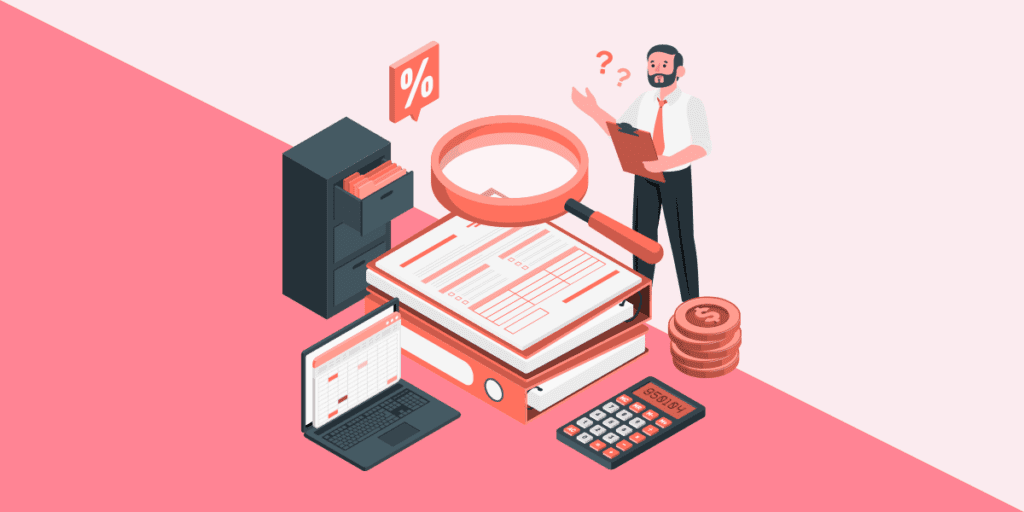
BAR is a great fit for candidates with a strong foundation in financial reporting, analysis, or those who are leaning toward roles in FP&A, advisory, or corporate finance. It’s the most technical of the CPA exam disciplines from an accounting perspective, with a heavy emphasis on data interpretation, performance metrics, and financial statement analysis.
If FAR is about building the reports, BAR is about understanding what they mean and how to communicate that meaning clearly.
What BAR tests
- Advanced financial reporting topics (segment reporting, interim reporting, consolidation)
- Financial statement analysis and performance evaluation
- Data analytics and interpretation
- Business intelligence and written communication
- Technical application of accounting standards
Where candidates struggle with BAR
BAR blends technical accounting knowledge with interpretive and analytical thinking. The difficulty often lies in pulling insight from the data, rather than just calculating it.
- Data-heavy questions: Tables, dashboards, and graphs are fair game. You’ll need to quickly digest multiple data points and identify key patterns under exam pressure.
- Written communication: You’ll likely face SIMs that ask for short-form written responses. These aren’t graded for grammar but clarity, structure, and use of keywords matter.
- Advanced financial reporting: Consolidation, pensions, and segment reporting show up again, but this time with more complexity.
- Time management: BAR questions can take longer to process due to reading volume and layered requirements, which is something to be aware of if you choose this option.
Common mistakes with BAR (and how to avoid them)
- Focusing only on numbers: BAR is as much about interpretation as it is about calculation. If you don’t practice explaining trends or drawing conclusions, you’ll miss easy points.
- Neglecting written response practice: You can’t just wing these. You need to get comfortable writing structured, on-topic responses quickly and clearly.
- Skipping foundational topics from FAR: If you didn’t fully master certain FAR topics (like pensions or consolidations), they’ll come back to haunt you here.
How to approach BAR
BAR rewards clarity of thinking, precision with data, and strong accounting fundamentals. Here are some tips about how to tackle it successfully:
Practice reading and analyzing performance reports
Ratio analysis, trend interpretation, and variance explanations are all core to BAR. Get used to (and good at) identifying why numbers changed, not just how much they changed.
Sharpen your written response skills
Treat it like writing an email to a client or manager: clear, organized, professional. Practice explaining accounting impacts, trends, or recommendations in a few sharp sentences. To pass the CPA, the aim is to get all the information across that you need to, as clearly and concisely as possible.
Use visuals to summarize tough topics
Flowcharts for consolidation steps or pension accounting help bring order to complex processes, and they double as great review tools.
Review the tricky FAR material
Don’t wait until you’re well into BAR to revisit leases, pensions, or segment disclosures that you might have already covered if you tickled FAR first. Refresh these as part of your prep plan.
Discipline section – ISC: Information Systems and Controls

ISC is the go-to CPA exam discipline for candidates who feel comfortable with technology, systems, data security, and risk management. If you’ve worked in IT audit, internal controls, or systems implementation (or you just enjoy thinking in flowcharts and frameworks) this one might be a good option.
Unlike the other CPA exams, ISC dives into business processes, data governance, cybersecurity, and IT system controls. These are areas not traditionally covered in accounting courses, but they are highly relevant in today’s tech-driven finance world.
What ISC tests
- IT governance, risk management, and control frameworks (e.g., COSO, COBIT)
- Business process design and system development life cycles
- Cybersecurity threats, responses, and disaster recovery
- Data management and governance principles
- Internal controls over financial reporting (ICFR) and IT system risks
Where candidates struggle with ISC
This section isn’t inherently difficult, but it’s very different from what most CPA exam candidates are used to. You’re dealing with logic, process mapping, and system architecture more than debits and credits. Common pain points include:
- Unfamiliar terminology: If you haven’t studied IT systems or cybersecurity before, the language can feel overwhelming at first.
- Conceptual application: Many questions ask things like, What’s the best control in this situation? or What risk does this scenario expose? You need be able to apply frameworks, not just recall definitions.
- Understanding business processes: ISC expects you to understand how inputs, outputs, and controls flow through a system, and how to identify weak points.
- Cybersecurity scenarios: Threats, vulnerabilities, and responses require judgment. This means you don’t just need to know what solutions are, you need to understand when they work and when they don’t.
Common mistakes with ISC (and how to avoid them)
- Trying to memorize absolutely everything: ISC is all about logic and structure. Understanding the why behind a control is far more useful than memorizing lists.
- Neglecting business process walkthroughs: If you skip studying how information flows through an organization, you’ll struggle with scenario-based SIMs.
- Overlooking data governance: Concepts like data lineage, quality, and access controls matter, and they’re tested more frequently than candidates expect so don’t let them catch you out.
- Thinking you don’t need to study: Just because it’s not accounting-heavy doesn’t mean it’s easy. Many candidates underestimate ISC and regret it on exam day.
How to approach ISC
ISC rewards structured thinking, risk awareness, and the ability to identify cause and effect in system environments. Here are some tips to help you prep effectively for the CPA exam section:
Study the frameworks and apply them
COSO and COBIT are big deals here, but don’t just memorize what they stand for. Practice applying them to real-world situations so you can diagnose risk and control gaps quickly.
Get comfortable with flowcharts and diagrams
ISC questions often include visual representations of business processes. You should be able to spot control points, data entry risks, and system vulnerabilities just by scanning a diagram.
Use logic-first thinking
Many questions are like puzzles: Which control mitigates this risk best? or What’s the weakest link in this process? Practicing these improves your pattern recognition and judgment.
Review basic cybersecurity concepts
Know your firewalls from your intrusion detection systems, your encryption from your access controls, and understand how they work together.
Discipline section – TCP: Tax Compliance and Planning
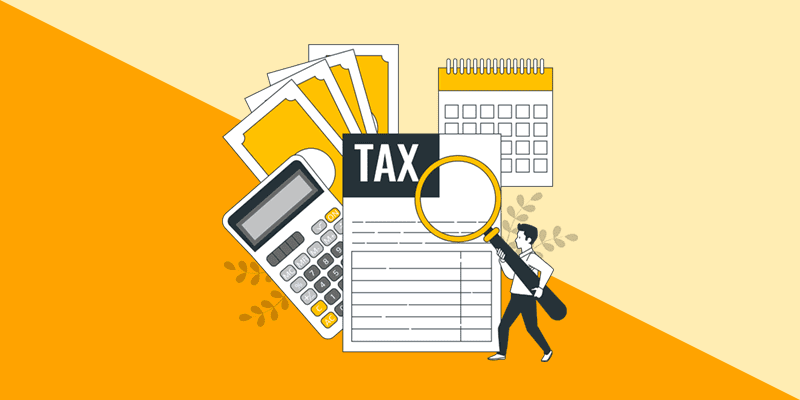
TCP is designed for candidates who enjoy tax and see their future in areas like public accounting, advisory, or private tax strategy roles. If you liked REG and want more, TCP is probably the one for you.
This section of the CPA exams builds on the foundation of REG but goes further into complex entity-level taxation, multijurisdictional issues, planning strategies, and compliance frameworks. It’s the most advanced of the discipline sections, and while it’s heavy on detail, it’s also very logical which makes it a great fit for structured thinkers.
What TCP Tests
- Entity taxation and flow-through planning
- Multistate and international tax rules
- Advanced basis and property transactions
- Tax elections and compliance strategies
- Succession planning, restructuring, and advisory roles
- IRS practice, representation, and risk management
Where candidates struggle with TCP
TCP can feel like REG’s older, more complex sibling and the depth of detail can sneak up on you. Let’s take a look at a few areas where candidates often hit roadblocks on the way to passing the CPA:
- Complex entity structures: Understanding how partnerships, S Corps, and consolidated C Corps handle distributions, basis, and elections is essential and easy to get tangled in without visual aids.
- Multijurisdictional rules: State and international tax concepts can be vague if you haven’t worked with them before. Nexus rules, apportionment formulas, and foreign tax credits require precise understanding.
- Tax planning logic: TCP wants you to think like a tax advisor, not just recall facts. You’ll need to evaluate options and choose the most efficient or compliant route.
- Heavy SIMs with layered fact patterns: Many TCP SIMs mimic real tax scenarios. These can be long, realistic, and full of details you’ll need to filter quickly.
Common mistakes with TCP (and how to avoid them)
- Treating it like REG 2.0: While there’s definitely overlap, TCP is more planning and application based. If you rely only on rote memorization, you’ll miss the nuance.
- Neglecting flow-through and basis rules: Basis adjustments, distributions, and contributions are core to this CPA exam. Skipping these early is a costly mistake.
- Overlooking tax elections and filing decisions: These often show up in SIMs and MCQs and they’re easy points if you’ve reviewed them.
- Assuming you know it from work: Even tax professionals can get tripped up because TCP goes broader and deeper than most day-to-day practice. So even if you work in tax, don’t think you don’t need to study!
How to approach TCP
This section of the CPA exam is all about strategy, structure, and detail (just like real-life tax planning). Here’s how to approach it effectively:
Map out entity differences and elections.
TCP expects you to know not just the differences between entities, but also how to structure them effectively. Create charts and flow diagrams to compare tax treatment, pros and cons, and elections available.
Use planning questions as practice
Focus on MCQs or SIMs that ask, “What’s the most tax-efficient way to…?” These questions train your brain to think like an advisor and anticipate tax consequences, which is what you’ll get points for in this CPA exam.
Review international and state tax basics
Understand the concept of nexus, apportionment, and sourcing. Don’t think of it so much as being about memorizing 50 state rules, it’s more about knowing how to analyze cross-border implications.
Practice SIMs with dense fact patterns
You’ll see long questions with layered details. Build your tolerance early by tackling one tough SIM per week. Focus on identifying the key facts before diving into the numbers.
Mastering CPA exam content: How to study smarter, not harder
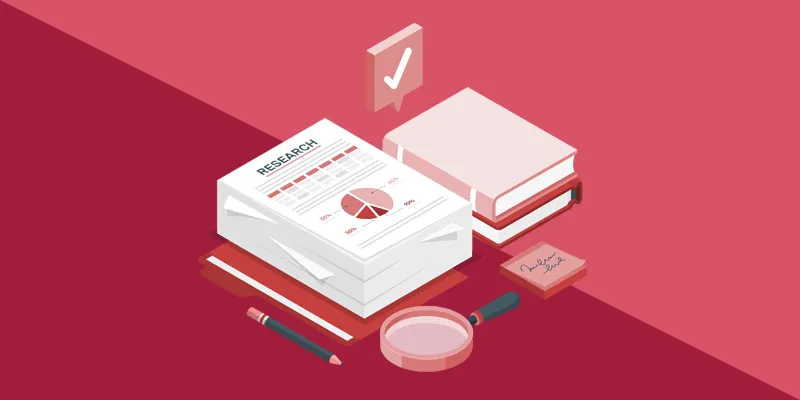
While it does require a lot of hard work, understanding how to pass the CPA exam doesn’t just mean grinding endlessly for hours. It’s more about studying with purpose to make sure you get maximum value from the time you put in.
Some candidates study 400 hours and fail, while others pass after 200. The difference often comes down to efficiency, not effort.
That’s not to say that you don’t need to put plenty of time in. Because when it comes to preparing for the CPA exams, you most certainly do. But it’s how you spend your study time that really matters, not just that you’ve spent it.
That’s why it’s important to set yourself up with a study approach that’s structured, adaptable, and tailored to how you learn best.
Assess where you’re starting from
Before you dive in, take stock of what you already know.
- Just graduated? You may already be strong in FAR or AUD.
- Been out of school for a few years? You might need more time to relearn fundamentals.
- Worked in tax? REG might feel more intuitive than you expect.
Most CPA review courses offer diagnostic tests and taking one of these can be a fast way to pinpoint your strengths and weaknesses, so you don’t waste time on what you already understand.
Once you have an accurate idea of your starting point, you can then build the rest of your CPA exam study strategy around this.
Build an efficient CPA study system
Don’t rely on pure willpower to get the job done. Even with the most positive attitude in the world, you never know when something will happen that could derail your motivation, no matter how committed you are to passing the CPA at the start of the process.
A strategy you can use to safeguard yourself against drops in motivation, or even just being unsure about what to do, is to build a system that makes studying automatic and repeatable.
Think of it like an athlete. There’ll be times when they’re feeling unmotivated to hit the gym or turn up for a training session. But they’re able to rely on their plan to keep them moving towards their goal by simply following the tasks they’ve already scheduled to do that day.
Your study system could include things like:
- A weekly plan: Know exactly what CPA exam topics you’ll cover and what materials you’ll use
- A tracking method: Log your hours, quiz scores, and weak areas
- A feedback loop: Adjust your plan based on performance, not guesswork
- A review rhythm: Revisit older material regularly (for example, on the same day each week)
Keep your system simple but structured. The fewer decisions you have to make each day, the more energy you’ll save for actual learning.
Make your CPA exam learning active

Passive study methods like rewatching videos or rereading notes may feel productive, but they rarely lead to deep understanding or long-term retention. Passing the CPA exams demands not just knowledge, but the ability to apply it under pressure. And that means your study habits need to reflect how you’ll be tested.
Active learning is about engaging directly with the material in ways that force your brain to retrieve, explain, or use what you’ve learned. It’s not more time-consuming, but has been shown to be more effective at almost every level of learning.
Here are some high-impact active learning techniques you could work into your study plan:
- Teach it back: Explain a concept aloud, as if to a colleague or friend. If you can’t explain it clearly, you don’t understand it yet.
- Practice before review: Attempt MCQs or SIMs before watching lectures. You’ll absorb the content more effectively once you’ve struggled with it.
- Write it out: Reconstruct key journal entries, definitions, or audit reports from memory. Don’t just highlight, make your brain do the work.
- Quiz yourself regularly: Use flashcards or self-made quizzes to test recall. Bonus points if you space them out over days.
- Brainstorm: Identify some real-world accounting challenges and brainstorm how you’d use what you’ve learned to address issues or reach solutions.
- Rotate old topics: Build in short weekly review sessions of earlier content to keep it fresh and build long-term memory.
If a study session feels slightly uncomfortable (like your brain’s being stretched) you’re doing it right, and you’ve probably taken in more than you think!
Match CPA study time to your energy
Getting the most from your CPA exam study is not just about identifying when you have time, it’s about when you have the energy to use that time well.
Studying when your mind is sharp leads to better focus, faster learning, and greater long-term retention. Conversely, pushing yourself to study during your mental “off hours” often results in wasted time, poor absorption, and frustration.
Research on chronobiology and cognitive performance shows that most people exhibit peak focus and mental performance during certain periods of the day, aligned with their circadian rhythm or “chronotype.” So whether you’re a morning person or night owl, there are times when your brain is sharpest, and times when it’s not. It has also been shown that different types of brain function perform better at different times.
CPA exam tasks require deliberate thought, careful analysis, and critical reasoning, all of which demand high cognitive effort. Trying to grind through practice when you’re mentally drained leads to more errors, slower progress, and wasted effort.
So, scheduling practice sessions (like CPA exam simulations or reviewing new content) during your cognitive peak, should help you build stronger mental connections, finish tasks faster and more confidently, and reduce frustration and burnout.
How to harness your energy peaks
- Identify your chronotype:
- Note when you feel most alert and focused during the day.
- Morning people? Use early hours. Night owls? Late afternoon or evening.
- Match task difficulty to energy level:
- Peak hours: Complete challenging tasks (SIMs, new material).
- Low-energy times: Review, do lighter MCQs, use flashcards.
- Protect your peak focus time:
- Schedule challenging blocks during these windows.
- Set boundaries to avoid interruptions.
- Use focused time blocks:
- Short, intensive sessions (e.g. 50 minutes with a 10-minute break) are ideal for cognitive peak.
- For example, if you’re sharp from 9–11 a.m., schedule simulation-heavy FAR practice then (not at 8 p.m. when you’re exhausted).
Create a productive environment

Your study environment plays a major role in how well you learn, often more than you think. It affects your focus, energy, memory recall, and even your motivation to get started. That’s because your surroundings act as cognitive cues, signaling to your brain, “This is where I study, and this is what I do here.”
The idea stems from a concept called context-dependent memory, which is the tendency for people to recall information better when they’re in the same environment where they learned it. So if your environment is optimized for focus, your brain gets into “CPA exam learning mode” faster, stays there longer, and recalls material more efficiently.
Distractions, on the other hand, add cognitive load. This means your brain is forced to filter out irrelevant stimuli (notifications, background noise, visual clutter) before it can fully focus on learning. Put simply: a focused space creates a focused mind.
How to set up a focus-friendly study space
- Designate a consistent study area. Even if it’s a small corner of a room, using the same space builds a routine.
- Clear the clutter. A clean desk helps reduce distractions and mental fatigue.
- Keep everything you need within reach and ready to go. This reduces friction and excuses to get up or lose momentum.
- Minimize digital noise. Silence notifications, close unnecessary tabs, and use full-screen mode for videos or MCQs.
- Try using the same ambient study music playlist or lighting every time you study. Your brain will begin associating those cues with focused work.
Make it sustainable
Smart studying is about incorporating beneficial techniques into a tailored process you can actually stick to, week after week. You should aim to prioritize consistency over intensity; passing the CPA exams is a significant undertaking, and consistency doing the right things is what pays off over the longer-term.
However, if you’re sticking to your plan but still start to feel overwhelmed, it’s absolutely fine to make adjustments to keep your study time efficient, productive, and adding value.
- Reduce your study block length (try 45 minutes, not 2 hours)
- Mix in active and passive learning (quizzes + videos + note reviews)
- Take real breaks. Physical movement, fresh air, or just stepping away from screens can help your brain absorb information.
Set up a weekly review ritual
Every week, spend 20–30 minutes reviewing the CPA exam topics you covered, what you got wrong, anything you’re avoiding, and what’s coming next.
Then, adjust next week’s plan based on that data. This one habit will keep you focused and prevent last-minute cramming or blind spots.
CPA exam practice strategy: MCQs, SIMs & pacing
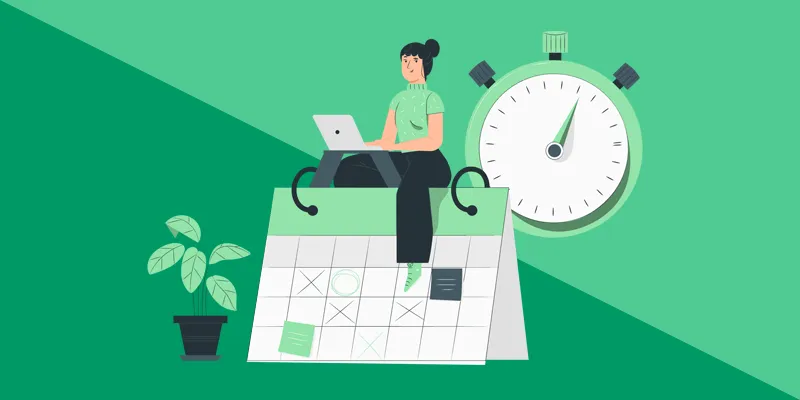
Let’s be real, watching lectures and reading notes will only get you so far, and simply memorizing content alone isn’t usually enough for success. In order to pass the CPA exams, you have to be able to apply what you’ve learnt. And what’s more, you need to be able to apply it under pressure, with the clock ticking, and a few curveballs thrown your way for good measure.
That’s why practice questions are possibly the single most important part of your CPA exam preparation strategy. Done right, practice sharpens your decision-making, reveals weak spots, and builds the speed and confidence you’ll need on exam day. It’s how you move from “I get it when I read it” to “I can answer it when it counts.”
Why practice is important
- It reveals what you don’t know. You’ll find gaps you never noticed in passive study.
- It strengthens recall under pressure. You need fast and accurate retrieval, not fuzzy memories.
- It trains your exam brain. Familiarity with question style and pacing reduces panic.
- It teaches nuance. Many CPA questions test similar concepts in tricky ways, and practice helps you understand the differences.
Mastering MCQs (multiple choice questions)
You’ll hear it over and over again: “Do more MCQs.”
And there’s a reason for that.
MCQs are how you train your brain to recognize patterns, catch your blind spots, and learn from your mistakes faster than you ever could by simply reading any textbook. When you do them right, they become less of a grind and more of a powerful feedback loop.
But it’s important not to focus on racking up thousands of questions just to say you did it. This is about turning practice into progress, one question at a time.
Aim for at least 2,000–3,000 MCQs across your full CPA journey. But remember: quality over quantity. Learning from your mistakes matters more than hitting a number. Here are five more tips for getting the most from your MCQ practice:
Tip 1: Don’t just click and move on
After every question (especially the ones you get wrong), stop and ask: “Why did I miss that?” Was it a misread? A concept you don’t fully get? A silly mistake? Figuring out why you got a question wrong is one of the best ways to make sure you know what to do next time.
Tip 2: Mix it up
Instead of drilling one topic at a time, try random sets to simulate the real test. This also forces your brain to switch gears quickly, just like you’ll have to on CPA exam day.
Tip 3: Practice under pressure
Time yourself. Get used to the feeling of moving quickly, making decisions, and not getting stuck. It’s important not to rush and simply guess, but being used to answering under real CPA exam conditions helps you to stay calm, think clearly, and answer correctly.
Tip 4: Use a missed question log
Jot down the topic, what tripped you up, and the right logic. Over time, this becomes a personal cheat sheet of your blind spots, and your roadmap to closing them.
Tip 5: Focus on active recall, not recognition
Try answering before looking at choices. While you can sometimes figure out an answer by means of deduction, this costs time. If you’re able to, it’s usually more efficient (as well as confidence boosting) if you can spot the answer that matches what you were already thinking straight away.
Conquering SIMs (task-based simulations)
As you’re probably aware, CPA SIMs have a reputation for being tough. And yes, they look long, they feel unpredictable, and they can shake your confidence if you’re not ready. But in reality they can be very manageable, and often more learnable than people think.
The key is to stop treating them like monsters and start seeing them as structured problems. They’re not trying to trick you, they’re simply asking you to apply what you know in a slightly messier format (to simulate what you’ll need to do in the real world).
A popular hack is to take a few MCQs you struggled with and turn them into your own mini-SIM. Write out the steps you’d take to solve them. You’ll be surprised how much this helps solidify your logic. Here are some other tips to help you with CPA SIMS:
Tip 1: Start practicing early
Don’t save SIMs for the last week of your study plan. Add one or two into your weekly routine, even just to explore how they’re structured. The more familiar you are with them, the less likely you are to panic and the easier it is to know what to do.
Tip 2: Treat them like puzzles
SIMs aren’t always as complicated as they look. So take a breath, slow down, and break it into parts. What’s the question really asking? What info is useful? What can you rule out?
Tip 3: Use your course tools
If your review course has a research tab, authoritative literature, or built-in SIM walkthroughs, use them. Especially for AUD and REG, where research-based SIMs can be easy wins (once you know how to navigate them).
Tip 4: Try explaining your answers out loud
If you can walk yourself through a SIM step-by-step, you’re building real understanding rather than just clicking around hoping for a green checkmark. Remember what we said about active learning earlier? This is a good way to put that into practice.
Tip 5: It’s okay to mess them up
SIMs are supposed to be tough. If you’re bombing them early on, that just means you’re in the learning zone. It’s all part of the process, and getting things wrong is how we learn to get them right. So keep going, follow your plan, and trust the process.
Managing your time (so the clock doesn’t beat you)

While the questions can be difficult, something else that CPA candidates worry about is the clock. Time pressure is real on the CPA exams. It’s one thing to know the content, but it’s another to get through all the questions without spiraling, rushing, or running out of time.
The good news? Time management is a skill you can build, just like anything else. And the earlier you start practicing with the clock in mind, the calmer and more confident you’ll feel when the stakes are real.
That’s not to say you won’t feel any time pressure because everyone does. But if you’ve practiced with it ahead of time, you’ll handle it with way more composure than most. Let’s look at some tips you can use both while you’re studying, and during the CPA exam itself:
Time management tips while you’re studying
- Time your MCQ sets: Try doing 20–30 questions in a set amount of time (say, 30–40 minutes). This gets you used to answering efficiently without second-guessing everything.
- Do timed SIMs, too: Even if you don’t finish every SIM on time, the goal is to get used to staying focused and moving forward.
- Simulate full exam blocks once a week: That means sitting down for a full 1-hour block (e.g., 33 MCQs or 2 SIMs) under exam conditions. No breaks, no rewinds, just like the real thing.
- Build in buffer time: Life happens. Falling behind doesn’t mean failing, but you’ll feel way better if you already have a week or two built into your CPA study schedule to catch up or review.
Time management tips for CPA exam day
- Watch the clock (but don’t panic): Try to spend no more than 75 seconds per MCQ. If you’re stuck, flag it and move on. You can come back later, and chances are, your brain will be clearer.
- Budget time for each section and stick to it: Go in with a rough time budget, like 45 mins per MCQ section and 30 mins per SIM. If you’re still deep in MCQs after an hour and a half, it’s time to move on and come back if there’s time at the end. Don’t let one stubborn question rob you of points later.
- Save your energy for the SIMs: They come later in the exam and require more mental bandwidth. If you burned all your focus on tricky MCQs, you’ll feel it here.
Use the tools: Highlight key phrases, eliminate wrong choices, and use the flag feature to stay in control of your pacing.
Mindset, motivation & staying on track

The CPA journey is demanding, but it doesn’t have to drain you. Understanding how to pass the CPA exams is about staying consistent through months of pressure, setbacks, and self-doubt. With the right mindset and a few powerful study habits, you can stay energized, motivated, and resilient, even through the toughest weeks.
Setbacks are a normal part of the process (and actually useful)
You’ll have unproductive days. You’ll bomb a quiz or SIM. You might even fail a section. None of this means you’re not cut out for this.
What matters is how you respond. Missed questions are learning opportunities. A low score is feedback, not failure. The more you treat setbacks as part of your growth, the more resilient you become, and ultimately the more likely you are to pass.
According to research, testing yourself while studying improves long-term recall ability, and this is amplified by reviewing feedback and learning from your mistakes. It’s called the “testing effect.”
What to do:
- Review your errors weekly.
- Create a mistake log to track patterns and reinforce corrections.
- Reframe setbacks as data: “Now I know where I’m weak, and that’s good.”
Understand why imposter syndrome shows up
Almost everyone preparing for the CPA exams feels like a fraud at some point, especially when comparing themselves to others who seem to be “crushing it.” The truth? Most people are struggling in their own way behind the scenes.
Up to 70% of people experience imposter syndrome at some point, and for CPA candidates, this often hits when comparing study pace, review course progress, or mock scores. Imposter thoughts increase under pressure, isolation, or lack of feedback. It’s a psychological response to high expectations, not a sign you’re unqualified.
What to do:
- Keep a private journal of small wins (passed quizzes, topics mastered).
- Avoid social media comparison traps, especially in the lead up to test week.
- Talk to a coach, mentor, or peer who’s been through the process.
Build consistency through habits (not motivation)
Motivation comes and goes, but habits are what carry you through. If you’re struggling to get started each day, shrink the task. Set a 15-minute timer. Do 5 flashcards. Read one SIM.
It’s estimated that over 40% of our daily actions are automatic habits, not decisions, and that we rely more on habits during stressful situations, such as the lead up to exams. Creating habitual study routines can therefore be more effective than simply waiting for motivation. Habit stacking can be a good way to integrate your study plan into your daily routine, increasing success and reduces decision fatigue.
What to do:
- Attach study sessions to existing routines. For example “After morning coffee, I do 25 MCQs.”
- Use the 2-minute rule to reduce resistance: start with just 2 minutes of study.
- Track streaks visually: habit-tracking apps or wall calendars can work wonders.
Understand what causes burnout
Burnout isn’t just from overwork, it often comes from feeling like your effort isn’t producing results. That’s why candidates who pass all their quizzes but feel unsure about their actual readiness often feel the most drained.
According to research, burnout stems from emotional exhaustion, reduced personal accomplishment, and depersonalization. The CPA journey is long, and if you wait until you’re fully licensed to feel proud, you’ll burn out along the way. The more you recognize your progress, the more likely you are to keep going.
What to do:
- Schedule check-in points to reflect on what’s working (and what’s not) to break the process into manageable sections with milestones.
- Passed a mock exam? Nailed a tricky topic? Finished your weekly review? Celebrate micro-wins weekly, even if it’s just finishing a hard SIM.
- Alternate heavy topics with easier wins to maintain psychological balance.
Don’t go it alone: social support lowers stress
Social connection is one of the most effective buffers against stress. Candidates who have even one supportive friend or study partner usually experience higher motivation and lower dropout risk. Having someone to vent to, share resources with, or trade encouragement can make a huge difference in your CPA exam success.
Peer accountability also increases goal achievement by up to 65%, and committing to someone else that you’ll achieve a goal makes you more than twice as likely to achieve it as simply deciding to yourself that you will.
What to do:
- Join a CPA related Discord server, Subreddit, or forum to share experiences with others facing the same struggles you are.
- Set up a weekly check-in with a study partner, coach, or mentor and share your goals: accountability boosts follow-through.
- Make an effort to spend time with family or friends away from your CPA exam studies, and schedule this into your weekly routine if necessary.
Exam day game plan

You’ve studied hard, taken your mocks, reviewed and addressed your weak spots. Now it’s time to bring it all together on CPA exam day.
While a solid study plan is essential before the exams, how you prepare in the 24–48 hours before the big day, and how you manage your time during the test itself, can make just as much difference as how well you know the material.
What to expect at Prometric
Prometric testing centers are secure, structured, and a possibly little intimidating if you’ve never been. But knowing the step-by-step process ahead of time helps reduce anxiety and makes the whole CPA exam experience smoother.
Here’s a breakdown of what happens, from the time you walk in to the moment you start your test:
Check-in & security process
| Arrival | Get there at least 30 minutes early. If you’re even a few minutes late, you risk forfeiting your appointment and your exam fee. |
| Documents required | Bring a printed or digital copy of your Notice to Schedule (NTS) and a valid, unexpired government-issued photo ID (driver’s license, passport, etc.). These must match exactly. |
| Storage | Personal items including your phone, keys, wallet, snacks, water, and even your watch must go into a designated locker. You’ll be given a key. |
| Biometric Checks | You’ll go through a biometric check, which includes a palm scan and a metal detector wand. You may also need to turn your pockets inside out and roll up your sleeves and pant legs. |
| Photo ID verification | You’ll have your photo taken before the test. This gets tied to your session record. |
Inside the test room
- You’ll be escorted into the exam room and assigned a cubicle with a computer, mouse, and basic noise-reducing headphones.
- The room is monitored via cameras and one-way glass, and proctors walk through regularly.
- No scratch paper is allowed. Instead, you’ll be given a small laminated noteboard and marker. You can request a clean one if you fill it up.
Breaks during exams
- You have 4 total hours, divided between MCQs and SIMs across four testlets.
- After your third testlet, you’re allowed a 15-minute standard break. This is the only break where the timer pauses. Take it!
- You may also take unscheduled breaks between other testlets, but these count against your time.
- To leave the room (even for a bathroom break), you’ll need to sign out and go through security again before re-entry.
Time management during the CPA exam
The CPA exam gives you four testlets and four hours, but how you use that time is crucial. Here are some tips you might want to include in your gameplan:
- MCQs: Don’t spend more than 90 seconds on any one question. Flag it and move on.
- SIMs: Some take 15–20 minutes. If you don’t know where to start, scan the exhibits and look for the easiest section first.
- Use the break: Get up, stretch, and hydrate. A quick mental reset can help with sharper thinking.
- Buffer time: Aim to finish with at least 5–10 minutes left for review, revisiting missed questions, or sanity-saving deep breaths.
Night-before and morning-of CPA exam checklist
You can’t cram FAR in a night. But you can prime your brain to function at its best. Here’s your no-stress checklist:
The night before:
- Review your cheat sheets, but don’t overwhelm yourself with new content.
- Pack your NTS, ID, snack, water bottle (for your locker).
- Set two alarms. Seriously.
- Plan your route so you know exactly how you’re getting to the test center.
- Aim to get 7–8 hours of sleep so you’re fresh on the day.
Morning of the exam:
- Eat something ideally with protein and slow release carbs to keep you satiated through the exam. There’s no food allowed in the test center.
- Arrive early with time to decompress. Give yourself plenty of time to get ready and get to the test center. Rushing causes extra stress you don’t need.
- Do a 5–10 minute warm-up (review key terms, formulas, or flashcards) to prime your brain before you walk in.
- Breathe. Remember, you don’t need 100% to pass. You’ve followed a plan so trust it; this is where it pays off.
10 insights from real CPA candidates: What actually helped them pass
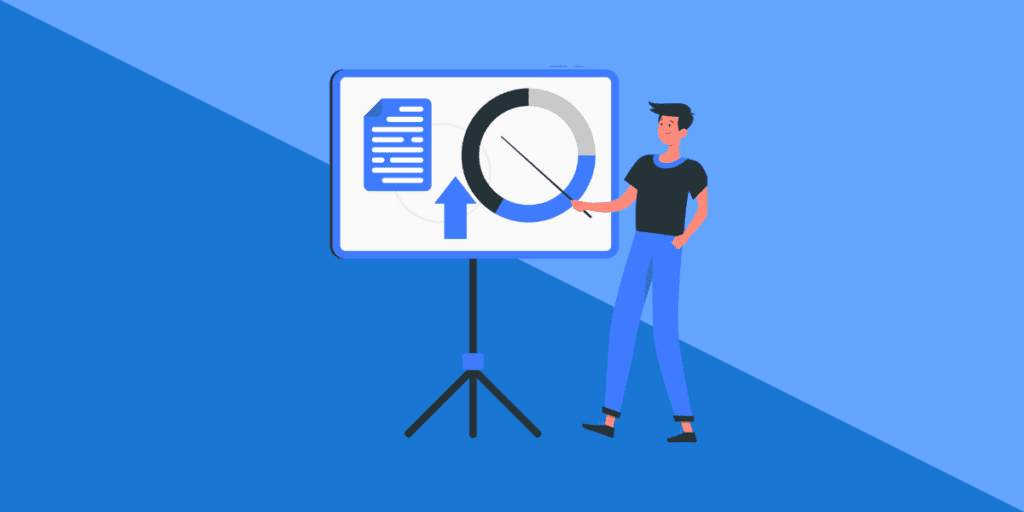
You’ve heard from instructors, review courses, and official resources, but what about the people who once upon a time were just like you? The ones who worked full-time, battled burnout, failed a section, and came out the other side with their CPA license?
Here we’ve collected insights, lessons, and encouragement from those who’ve taken and been successful in passing the CPA exams. After all, who better to learn from?
1. Understanding beats memorizing
“Know the whys and the hows. Most of us can memorize definitions, but that’s not enough. Ask yourself: could I teach this to a smart six-year-old?”
Understanding the logic behind journal entries, tax rules, and audit procedures helps you solve curveball questions (the kind you can’t memorize for). Focus on big-picture comprehension and learn the underlying ideas, not just what to punch into a calculator.
“Every problem on the exam is testing a concept or a few. Identify what you’re having difficulty with and focus on those.”
2. Embrace active learning
“Reading and watching are passive. Taking notes and doing MCQs, that’s where it starts to stick.”
Write flashcards as you study. Turning notes into cards turns passive review into active recall and gives you a portable quiz deck for quick reinforcement. Reading something and then moving straight onto answering questions on it is one of the most powerful retention techniques in learning science.
“Immediately do MCQs. Read the explanations. Make more flashcards. Then review them before moving on to the next chapter.”
3. Practice with intention
“Do every SIM. Yes, even the weird ones. They helped me tie together all the concepts and really get the material.”
Flag your hardest questions. Come back to them during review; many candidates do this using unlimited test generators to keep drilling problem spots. Practice under real conditions, right down to strict timing and not using your notes.
“It’s always better to get it wrong during practice than on the actual exam.”
4. Have a process for everything
“My process for MCQs was just write A, B, C, D, E then eliminate. It helped me slow down and relax, even when I was panicking.”
Structure is calming. When the pressure hits, having a defined method for tackling questions helps reduce cognitive overload. Create repeatable routines. For MCQs, SIMs, review sessions, and even exam-day prep.
“Develop a method while studying that you’ll use in the actual exam. It made me feel like I was back in my study space.”
5. Don’t overschedule, or underschedule
“I always got about halfway through studying before scheduling my exam. This way I could gauge how long each module would take me.”
Scheduling too early can lead to panic. Waiting too long can lead to procrastination. Many CPA exam candidates find success by starting first, getting a feel for the pace, then scheduling once they hit a consistent groove. For example, you could wait until you’re 30–50% through a section before scheduling the exam. Use your actual progress to set realistic expectations.
“Sometimes I got behind schedule and had to destroy an entire week of my life getting back on track, but I never pushed an exam out because I treated those deadlines as sacred”.
6. Consider starting with FAR
“I front-loaded FAR, gave myself a breather with AUD, hunkered down for REG, and saved the ‘easiest’ for last. I customized my lineup based on my personal strengths.”
FAR is big, both in volume and complexity. Most successful candidates recommend tackling it first, while your motivation is high and time is on your side. The exam order you choose should reflect not just content familiarity but your energy, timing, and burnout risk.
“If you passed FAR, you’re over the hump. It took half my total study time.”
7. But build a study system that works for you
“Everyone has their own method… what worked for me was 10 MCQs at a time, then a break. I left some MCQs unfinished to use during final review.”
Everyone’s CPA study routine looks different. Some people do morning sessions before work, others use lunch hours or prefer late nights. The constant? A realistic schedule and commitment to it. But don’t blindly follow someone else’s plan; create a personal exam order based on your own strengths, not just popular opinion.
“Customize your lineup. If FAR will drain you, start there while you’re fresh. If REG is easy for you, save it for when you’re burning out.”
8. Focus your energy where it counts
“Don’t aim for a 75. That gives you zero margin of error. Walk in knowing you’re actually prepared.”
Be strategic with your time. Don’t sink hours into low-yield material. Focus on high-probability concepts, even if that means sacrificing the rare one-off deduction rule. Use Reddit, YouTube, and other communities to refine your focus during final review weeks.
“Some REG stuff isn’t just for the exam, it’s useful life knowledge. But you don’t need to master everything. ROI matters.”
9. Take care of yourself (and your sanity)
“These exams hung over my head. I lost sleep. But I always made time for my wife, my friends, and myself, even just one night a week.”
Burnout is real and it kills productivity. Candidates who make time for rest and connection stick with their plans more consistently. So protect your mental health as fiercely as your study schedule. This isn’t just about passing the CPA, it’s about staying whole while doing it.
“Don’t ruin your mental health over these exams. You’ll just be wasting your time if you’re not effective.”
10. Confidence is built, not felt
“These exams were a mental toll every single day. But walking in confident made a world of difference.”
Confidence isn’t something you magically wake up with the day before your exam. The candidates who pass the CPA are usually those who walk in prepared, not because they felt lucky, but because they put in the time, pressure-tested their knowledge, and knew they’d earned it.
So instead of aiming for “just enough,” build up to a level where you can teach the material, solve MCQs cold, and take a practice exam under full conditions. That confidence is your buffer on exam day.
“Be confident in your understanding… It’s a finite list of concepts. You got this.”
After the CPA exam: next steps

Congratulations, you’ve finished the CPA exam! But now what?
This part of the journey can feel oddly quiet after weeks (or months) of structured study. Whether you’re waiting on your score, celebrating a pass, or figuring out what went wrong, here’s how to keep your momentum and make the most of the post-exam period.
Score release: when & how
Most CPA exam scores are released by the AICPA and distributed through NASBA or your state board. Release dates are typically tied to the date you sat for your exam.
- Scores are usually released within 8–16 days after your exam, depending on the testing window.
- You’ll receive your results either via your NASBA account or directly from your state board.
- Your score report will include your numerical score, performance breakdown, and diagnostic feedback (if you didn’t pass).
Use this waiting time for low-stress review or a short break, but don’t lose the rhythm entirely if you still have exams left.
More details about CPA exam dates and score release
If you passed
First, take a moment to celebrate. Seriously, passing a CPA exam section is a huge achievement!
- If you have more exams to go, lock in your next testing date within a few weeks while momentum is still high.
- Reflect on what worked: Which study methods were most effective? How did your exam-day plan hold up? Refine your process for the next one.
- Use your score report to identify any weak areas that could pop up again in other sections.
Each CPA exam passed is not just a milestone, it’s also a huge confidence builder. So keep going while your motivation is fresh.
If you didn’t pass
First, know this: you’re not alone. The CPA exam pass rates are typically around 45–55% per section. Failing doesn’t mean you’re not capable, it just means you’re still in the process.
- Carefully review your diagnostic performance report. This will show your relative strengths and weaknesses by topic.
- Don’t immediately rewatch every video. Instead, target the areas where you were “weaker” or “comparable,” especially in simulations or conceptual material.
- Adjust your study method: Did you do enough active recall? Were SIMs a weak spot? Were you rushed?
- Take a few days off, then get back into a review-focused study plan, not a total restart. Often, 3–5 focused weeks is all you need to get over the line on a retake.
Remember: A score between 65-74 is frustrating, but it means you’re very close. So don’t throw out everything because all you really need to do is refine what worked and patch what didn’t.
Retaking a section
If you didn’t pass, reschedule your exam strategically:
- Don’t wait too long because your retention fades quickly after exam day. So keep going while you’re still in the mindset.
- But don’t rush it; give yourself enough time to rebuild confidence, especially in weaker areas.
- Consider using a different review tool or supplement if something didn’t click the first time.
- Practice SIMs early and weekly to build confidence, not just at the end.
If you’re between exams
If you’re waiting for a score before scheduling your next exam, here’s what to do:
- Use the time to lightly review the next section’s blueprint.
- Revisit your overall study plan and make updates based on what you’ve learned.
- Take a week (or even two) off guilt-free, especially if you’re nearing burnout.
- Check your credit expiration dates. Remember, once you pass your first section, the 18-month clock starts ticking.
If you’ve passed all four CPA exams

Well done! You’ve done what many never finish. Passing all four CPA exams is a huge milestone, but you’re not fully licensed just yet. There are still a few key steps between passing the exams and earning your CPA designation.
Verify your experience requirement
Most U.S. jurisdictions require 1–2 years of relevant work experience under the supervision of a licensed CPA. This often needs to be:
- In public accounting, corporate finance, or government roles
- Verified by your employer or supervisor on a formal form (varies by state)
Check your state board’s requirements because some states allow non-public experience, others are more strict.
Complete the ethics exam (if required)
Many states require candidates to pass an ethics exam, such as the AICPA’s Professional Ethics for CPAs course. This is typically:
- A self-study course + open-book exam
- Scored as pass/fail
- Required after your exams, before licensing
You can often purchase the ethics course directly through your state society of CPAs or NASBA.
Apply for your CPA license
This is the final step in your CPA journey. All the work and effort so far has brought you to this point and you’re now ready to apply for licensure. Each state has a slightly different process, but it typically includes:
- Submitting transcripts and work verification
- A background check
- Application fees (often $100–$300)
Visit your State Board of Accountancy website where you’ll find detailed application checklists and details.
You’ve reached the end of the article and should now be well equipped to start the process of studying for and passing the CPA exams. Here are some other articles you might also find useful: